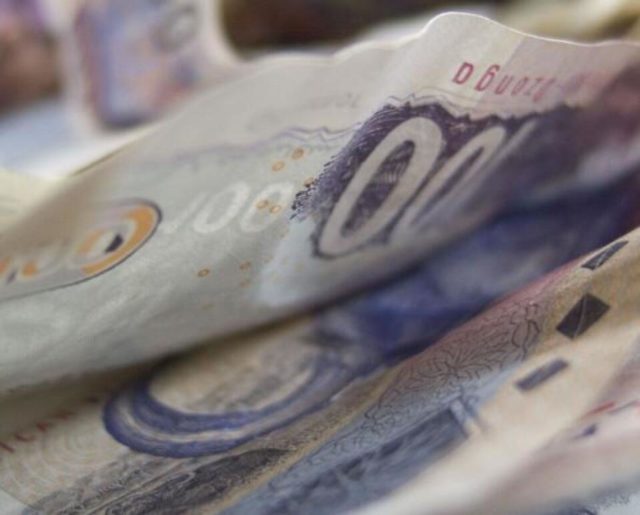OVER 230 000 investors in the Up Money grocery stokvel, which has now been declared a pyramid scheme, have been swindled and bank accounts holding more than R18 million have been frozen by the National Consumer Commission (NCC).
Acting in tandem with the Asset Forfeiture Unit of the National Prosecuting Authority and Financial Intelligence Centre (FIC), the NCC spent the last two weeks investigating Up Money with a view to shutting it down.
NCC acting commissioner Thezi Mabuza said the commission’s investigation revealed that Up Money contravened section 43(2)(b) of the Consumer Protection Act by promoting and causing members of the public to join and participate in a pyramid scheme.
“The modus operandi of Up Money was to use social media to solicit members of the public to participate in the scheme. In order to receive the promised meat and/or grocery packs, participants were required to pay a one-off joining fee of R180 and to recruit five new participants,” said Mabuza.
“As is typical of pyramid schemes, new participants made up the base of the pyramid and provided funding for participants who were recruited prior to them and who occupy higher positions in the pyramid.
“Following requests from the NCC, the FIC analysed Up Money’s bank statements and established that the scheme, which promoted itself as a stokvel, had received an amount of R42.7 million between May 4 and July 2.
“Some of the funds were then moved into the business account of another company of which one of the directors of UP Money is the sole director. More than R14.5 million was dissipated through point of sale purchases at various retail stores. In addition, three luxury motor vehicles were also purchased namely, a Hummer, a Jaguar and an Audi TT,” said Mabuza.
As Mabuza was speaking, an online petition at change.org demanding that FNB unfreeze the accounts of Up Money, had garnered nearly 3 000 signatures.
Meanwhile on July 23, as the crisis began to bite and accounts were frozen, Up Money CEO Jude Ignatius Matsimela issued a statement on YouTube in which he said: “Up Money is a grocery stokvel registered as a limited liability company. We started operations in February 2020.”
Explaining how the scheme worked Matsimela said: “At Up Money we optimise on the opportunity presented by grocery bulk buying. Simply put, the more buyers we have, the higher the discounts we’ll receive from commercial grocery stores, and therefore the cheaper the groceries.
“To incentivise our clients, as a retention strategy, we ensure that our members make extra income through the savings that the stokvel makes. This is who we are and this is what we’ve been doing successfully throughout the past four months.
“We have testimonials available on the Up Money website for anyone to view and these back us up.”
The general manager for Africa at Luno, Marius Reitz, said: “Scammers will offer big profits if you send them your funds. They’ll even give fake testimonials to make their proposition seem legitimate. We strongly advise against sending anyone money to invest for you. Remember: If it sounds too good to be true, it probably is.
“One of the most common red flags is: The scammer tells you he’s encouraged to recruit more people into an investment programme, as he’ll earn an income from your investment.”
Debt Rescue CEO Neil Roets said: “Consumers are struggling financially to the worst degree at the moment, due to the impact of Covid-19 on their income. Many consumers have faced salary cuts, no income, or in worst cases even job losses. This created the perfect breeding ground for opportunists to exploit the already bad situation, through money-making ventures such as pyramid and Ponzi schemes.
“To avoid falling into these traps it is very important to do research. If an investment offers you a return of 20% or 30%, you have to ask questions of how this is possible? When registered financial institutions only offer savings interest rates of 6 or 7%, it has to raise questions around the legality, as well as risk.”








